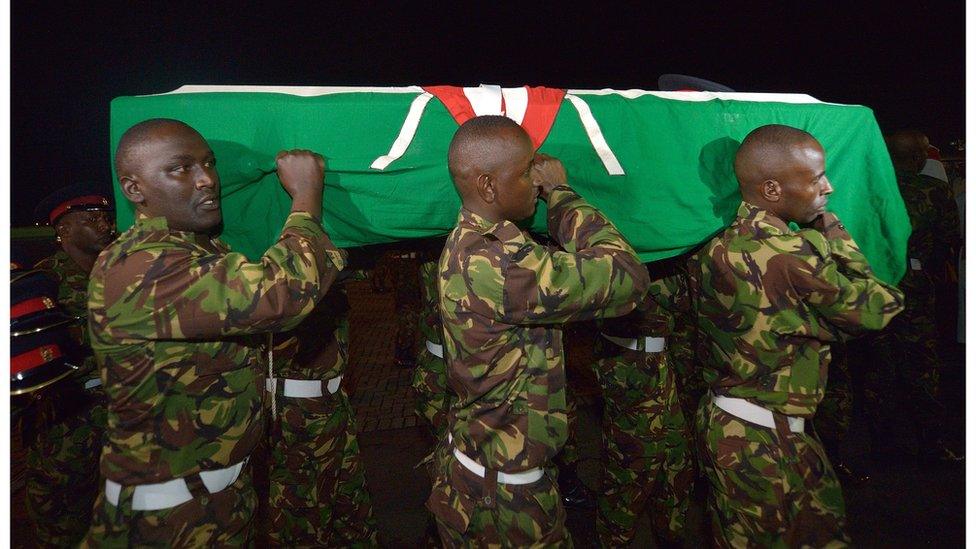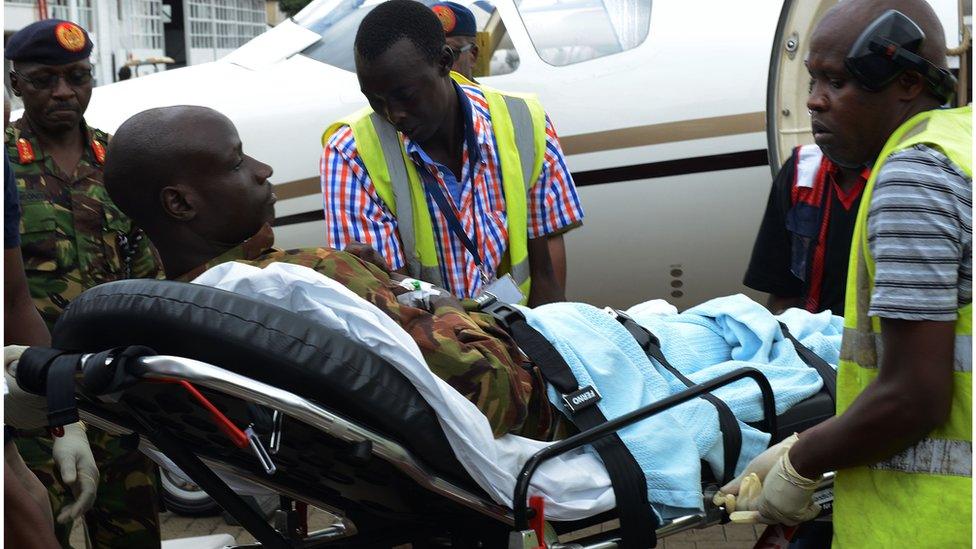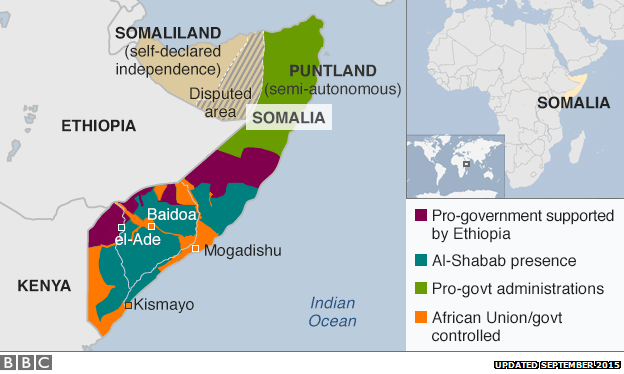Kenyan man charged over dead soldier photos
- Published

African Union troops in Somalia are supporting the UN-backed government
A Kenyan man has been charged for allegedly sharing pictures of Kenyan soldiers killed last week by militant Islamist group al-Shabab in Somalia.
Eddy Reuben Illah denied publishing the photos on the messaging service WhatsApp and was remanded in custody.
Prosecutors said the images were likely to cause fear and alarm.
Al-shabab said it had killed more 100 Kenyan soldiers when it raided an African Union base outside the town of al-Adde on Friday.
The Kenyan military has denied the claim but has not come up with its own casualty figures.
The bodies of four soldiers killed in the fighting were repatriated to the capital, Nairobi, on Monday night.
At least 20 soldiers have so far returned home, some critically wounded.

Kenya has refused to mention the number of soldiers killed or injured in the attack
Kenya contributes more than 4,000 troops to the 22,000-strong AU force that is in Somalia helping the UN-backed government battle al-Shabab, which is linked to al-Qaeda.
Despite the attack, President Uhuru Kenyatta says the country remains "unbowed and undeterred" in the fight against the militants who want to establish an Islamic state in Somalia.
Al-Shabab was ousted from the capital, Mogadishu, in August 2011, but still has a presence in large areas of southern Somalia and often stages attacks across the country.

Q&A: Al-Shabab at a glance
Who are al-Shabab? Al-Shabab means The Youth in Arabic. It emerged as the radical youth wing of Somalia's now-defunct Union of Islamic Courts, which controlled Mogadishu in 2006, before being forced out by Ethiopian forces.
What are al-Shabab's foreign links? In a joint video released in February 2012, former al-Shabab leader Ahmed Abdi Godane said he "pledged obedience" to al-Qaeda head Ayman al-Zawahiri. The two groups have long worked together and foreigners are known to fight alongside Somali militants.
What is happening in Somalia? Somalia has not had an effective national government for more than 20 years, during which much of the country has been a war-zone. Al-Shabab gained support by promising people security. But its credibility was knocked when it rejected Western food aid to combat a 2011 drought and famine. With Mogadishu and other towns now under government control, there is a new feeling of optimism and many Somalis have returned from exile, bringing their money and skills with them.
How much of Somalia does al-Shabab control? Although it has lost control of most towns and cities, it still dominates in many rural areas.
